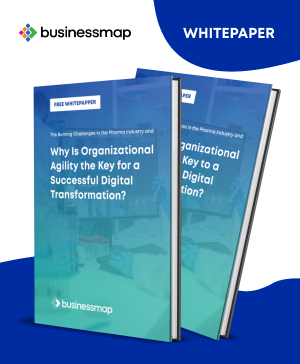If you use social media, you'll notice a lot of negativity about OKRs. Many people claim they don't work, and they are partially correct. Implemented dogmatically, they don't work.
If you regard the framework as a blueprint or a series of prescriptive actions, you will be disappointed. OKRs have to adapt to your context and be clear about the problem you're solving with them.
It should be a helpful framework, not a pointless straightjacket.
Let me share four common mistakes that create resistance to OKRs and often lead to failure.
1. Believing You Need OKRs All the Time
What if you're in a learning phase? You could be assessing opportunities, working on a strategic rethink, or undertaking some deep market analysis. It's OK to say that we are parking OKRs while we learn more.
Use OKRs when you can go back to goals connected to your strategic hypotheses. Artificially creating OKRs to cover learning phases undermines everybody's faith in the framework. Learning goals are usually output, not outcome-related.
2. Insisting OKRs Should Cover All Work
No, it shouldn't. See above; we don't write OKRs to track learning. You'll have to do lots of stuff that isn't part of your strategy. Do it, but don't set goals for it. It's a pointless waste of everybody's time.
I see this most often when leaders believe OKRs are there to make everybody feel important.
The thinking goes that because we have an OKR, our work matters. Making people realize their worth is a leader's job, not a framework's.
OKRs are about focusing on the most important challenges you face, not about tracking every task you undertake.
3. Being Rigid About the Quarterly OKRs Cadence
Cadence can be helpful for building rhythm and sometimes as a forcing function to complete things. When used for OKRs, they should support your rhythm, not restrict it.
Not all things will take the same amount of time. You don’t have to copy Google. Use a time period that works for you. End the period when you need to!
At a fast-moving startup, a month can be enough time to make progress on a strategic challenge. In some contexts, it may take 4 months to see notable progress.
Both timeframes are fine for OKRs.
4. Being Dogmatic About Sticking to an OKR
My personal bugbear. Some people still suggest you don’t change your OKRs no matter what. OKRs are about learning. It’s not fun, but the most useful thing you can learn is that the OKRs don’t support your strategy. Ideally, you’ve considered that possibility. If not, step back, rethink, and update your strategy and OKRs. Remember, you don’t need an OKR in this learning phase!
The same goes for OKR targets. Be cautious when setting them up, especially in a new domain. When you know the least, setting a target that is both aspirational and feasible is hard. As you move through the period, use what you have learned to amend your target.
So What Now?
You've seen the mistakes, now what? Here's the exciting part. By avoiding these common pitfalls, the OKR framework can become a powerful tool for growth and focus.
Imagine a world where your team is energized by a clear understanding of the company's strategic goals. They're laser-focused on what matters most, constantly learning and adapting along the way. This is the potential of OKRs done right.
OKRs aren't a magic bullet, but they can be a game-changer for organizations that embrace flexibility and continuous learning. Remember, OKRs are a framework, not a cage. Use them to your advantage, adapt them to your context, and watch your team soar.
And hey, if things aren't quite clicking, don't be afraid to ditch the OKRs for a learning phase. After all, the most important goal is to move the needle forward, not blindly follow a process. So, ditch the frustration, embrace the potential, and unlock the power of OKRs for your organization.
Start your 14-day free Businessmap trial
Ian Harvey
Strategy and OKR Coach
Ian is a strategy and OKR coach who helps organizations from household names to hyper-growth unicorns align and focus with OKRs.



